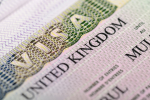D7 Visa Portugal Requirements. Are you considering moving to Portugal and enjoy the country’s stunning landscapes, rich culture, and Mediterranean lifestyle? The D7 Visa might be the perfect option for you! Known as the “Passive Income Visa,” the D7 Visa allows non-EU nationals to reside in Portugal by proving they have sufficient passive income. In this article, we will walk you through all the essential requirements for applying for the D7 Visa in 2025.
What is the D7 Visa?
The D7 Visa is specifically designed for individuals who can show proof of stable passive income. This income can come from various sources such as pensions, rental income, dividends, or investments. The visa allows the holder to live in Portugal, which has become a popular destination for retirees and digital nomads due to its affordable cost of living and vibrant expat community.
D7 Visa Portugal Requirements for 2025
- D7 Visa Application Form: The first step is to fill out the D7 Visa application form accurately. Ensure that all information matches the details on your passport and other documents. An incomplete or incorrect form could delay the process.
- Valid Passport: You will need a valid passport with a minimum of six months of validity beyond your intended stay in Portugal. If your passport is about to expire, renew it before applying to avoid delays.
- Passport-Sized Photographs: Provide two passport-sized photographs that meet the requirements set by Portuguese authorities. These photographs should be recent and follow the specific dimensions for visa applications.
- Proof of Sufficient Funds: One of the most important requirements for the D7 Visa is proof of sufficient funds. You need to demonstrate that you have a steady and reliable source of income that is sufficient to cover living expenses in Portugal. This could include:
- Pension income
- Rental income from property
- Dividend income
- Bank statements showing passive income or investments The amount required varies depending on the number of dependents accompanying you, but it generally amounts to around €1,200 per month for a single applicant.
- Proof of Long-Term Accommodation: You will also need to provide proof of long-term accommodation. This can be in the form of a rental contract, property deed, or other documents confirming your accommodation for at least 12 months or more. Ensure that the property is in your name or that you have a legal agreement with the landlord.
- Police or Criminal Record Check Certificate: Applicants are required to submit a police certificate or criminal record check from their home country. This ensures that you have a clean criminal history, which is a key part of the visa approval process.
- Proof of Health Insurance: Health insurance is another mandatory requirement for the D7 Visa. You must show that you have adequate health insurance coverage that meets the standards required by the Portuguese government. This can be private health insurance or coverage through the Portuguese public healthcare system (if applicable).
How to Apply for the D7 Visa
Once you have gathered all the necessary documents, the next step is to submit your application to the nearest Portuguese consulate or embassy in your home country. The consulate will process your application, and if everything is in order, they will issue your D7 Visa. The process can take a few months, so it’s essential to apply well in advance of your intended move.
Related Posts
Conclusion
The D7 Visa for Portugal is a great option for those with sufficient passive income who wish to live in one of Europe’s most attractive destinations. By fulfilling the necessary requirements and demonstrating a stable financial situation, you can make Portugal your home and enjoy everything this beautiful country has to offer.









